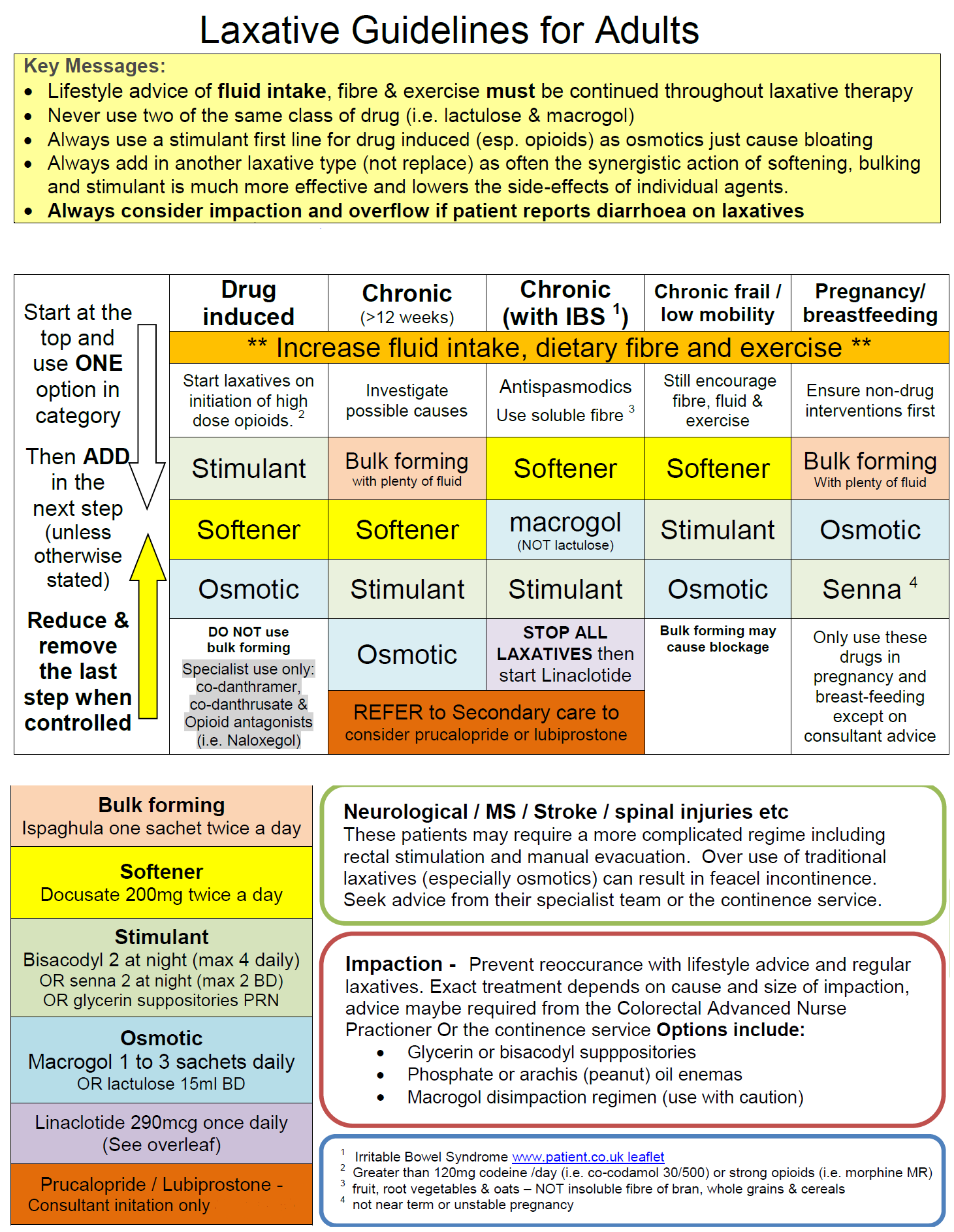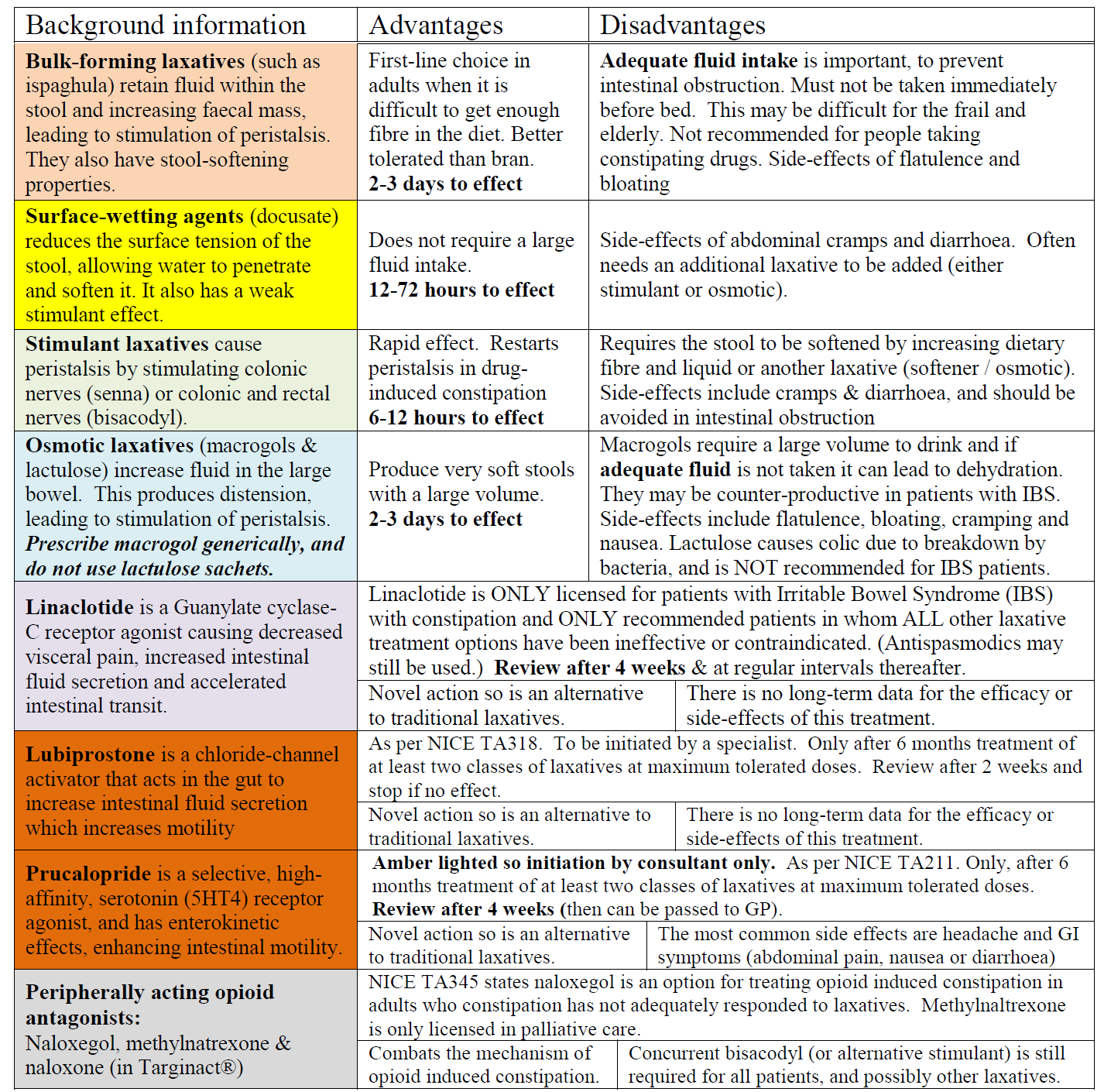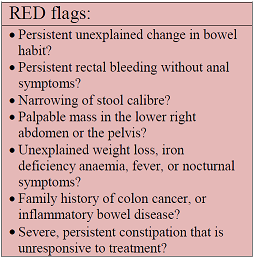Laxatives are agents which promote bowel evacuation.
They may be overused and abused. In excess, they may cause diarrhoea, dehydration, hypokalaemia, atonic bowel and weight loss.
Laxative use may be appropriate in certain situations (1)
- if there is no response to adequate dietary and lifestyle advice (e.g. after one month)
- if faecal impaction is present
- if the constipation or painful defecation is associated with illness, following surgery, or during pregnancy
- if the patient is elderly and has a poor diet
- if drug-induced constipation
- if the patient has a pre-existing medical problem in which bowel strain is undesirable (e.g. coronary heart disease)
- use of laxatives in preparation for an operation/investigation
In general
- the lowest effective dose of a laxative should be used - this should be reduced once symptoms resolve
Long-term use of laxatives may be necessary in certain situations:
- where constipation and faecal impaction could re-occur if treatment is stopped e.g. during the use of opioids in palliative care, in progressive neurological conditions (e.g. Parkinson's disease, multiple sclerosis), where there is immobility due to old age or illness, and in some children to prevent relapse
A suggested guideline for use of laxatives in adults is summarised (2):


Consider Red Flag symptoms when managing constipation in adults:

Reference:
- MeReC Bulletin (2004), 14(6):21-4.
- Laxative Guidelines for Adults. Rotherham Clinical Commisioning Group (Accessed 9/11/19)
Related pages
Create an account to add page annotations
Annotations allow you to add information to this page that would be handy to have on hand during a consultation. E.g. a website or number. This information will always show when you visit this page.